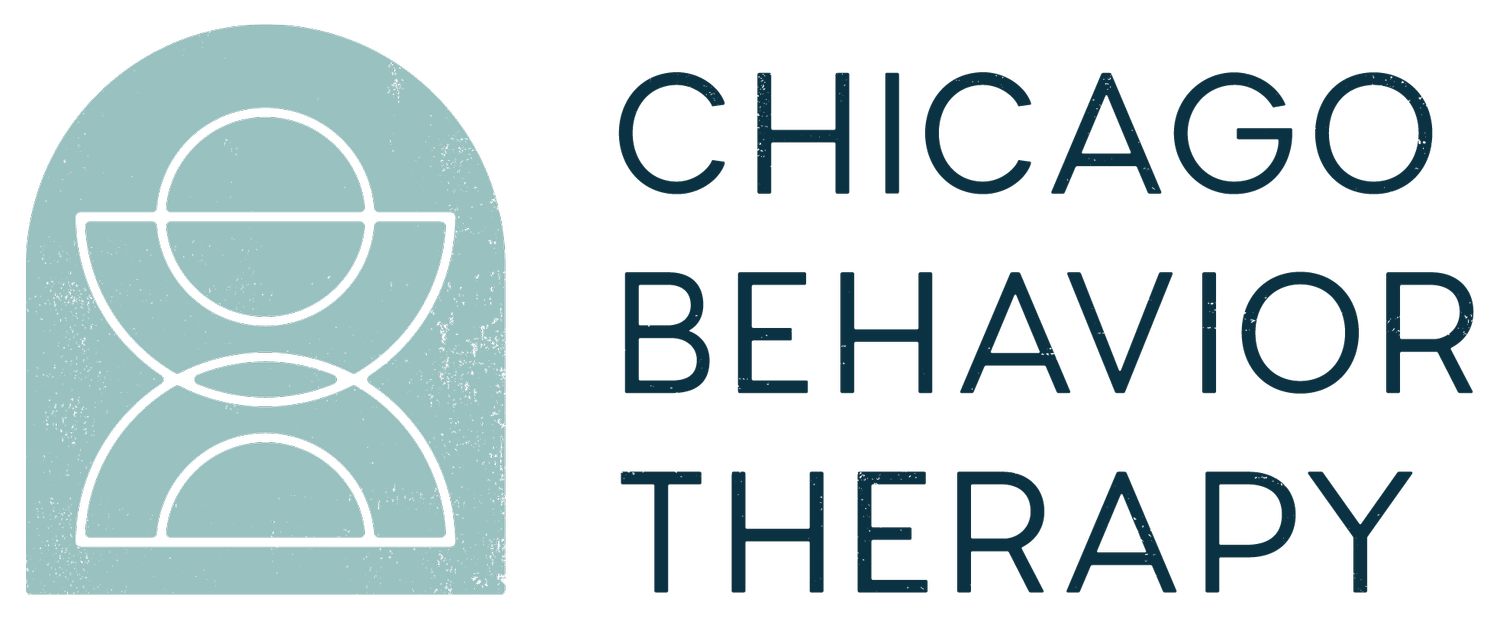
Individual & Group Therapy
Cultivating meaningful change
At Chicago Behavior Therapy, we offer a variety of therapeutic services backed by evidence and expertise. Our services include Individual Therapy, Group Therapy, Family Services, and Psychological Evaluations.
DBT
Dialectical Behavior Therapy
DBT (Dialectical Behavior Therapy)
Dialectical Behavior Therapy (DBT) is a cognitive-behavioral therapy designed to empower individuals manage emotional dysregulation, enhance their relationships, effectively cope with distress, and cultivate mindfulness.
Who is DBT for? DBT is beneficial for individuals grappling with "Emotional Dysregulation," a characteristic often found at the heart of several mental health disorders.
DBT is a transdiagnostic treatment, meaning it can address a diverse range of issues, including Major Depressive Disorder, Anxiety Disorders, Substance Use Disorders, Post-Traumatic Stress Disorder (PTSD), and Borderline Personality Disorder (BPD).
DBT adheres to a structured protocol that flexibly and creatively caters to the needs of the individual.
A standard DBT treatment protocol includes:
DBT Skills Group: This 24-week group program teaches essential DBT skills for distress tolerance, values identification, relationship improvement, emotion regulation, and improved mindfulness. The program consists of three 8-week modules with Mindfulness content interwoven at every step: Distress Tolerance, Emotion Regulation, and Interpersonal Effectiveness.
Individual Therapy: Weekly or biweekly individual sessions are designed to help clients master the skills learned in the DBT skills group. Often, individual DBT incorporates behavior chain analysis, a tool used to understand the factors contributing to an individual's distress and to devise solutions for behavior change, circumventing judgement and blame. Individual DBT therapy maintains a balance between being direct, thoughtful, and challenging while at the same time being deeply personal, honest, and supportive.
Phone Coaching: This structured and concise intervention is designed to guide individuals in skillfully managing crisis situations. Typically, clients have access to phone coaching at all times.
DBT Consultation Team: The DBT consultation team provides a supportive environment for therapists to consult on cases, solicit feedback, and strive to offer the best possible treatment. Think of DBT Consultation Team a bit like therapy for the therapist.
ACT (Acceptance and Commitment Therapy)
Acceptance and Commitment Therapy (ACT) is a unique form of psychotherapy that emphasizes the importance of acknowledging and embracing thoughts and feelings instead of attempting to control or avoid them. While the concept of accepting even the harshest experiences might appear counterintuitive, practicing radical acceptance can mitigate the additional suffering caused by avoidance strategies and can paradoxically diminish their intensity.
ACT hinges on three fundamental concepts:
Acceptance: Rather than attempting to control or eradicate negative feelings, ACT promotes acknowledging and accepting these feelings as part of the human experience. This acceptance doesn't equate to resignation; instead, ACT suggests that once we accept our reality as it is, we become capable of change.
Mindfulness: ACT encourages staying present, fully immersed in ones ongoing experiences without judgment while at the same time refraining from becoming excessively anchored in the past or future.
Personal Values: ACT assists in identifying personal values and helping individuals committing to actions in alignment with these values, thereby propelling individuals towards a more purposeful life.
ACT does not focus symptom reduction as a treatment goal, although it may be a byproduct of the process.
ACT's core focus lies in empowering individuals to lead a rich, full, and meaningful life, even in the midst of pain and distress.
Once we accept our experience exactly as it is we change.
Prolonged Exposure Therapy (PE)
Prolonged Exposure Therapy (PE) is a rigorously tested and efficacious treatment specifically designed to address all forms of Post-Traumatic Stress Disorder (PTSD). PE aims to reduce the debilitating symptoms of PTSD by focusing on specific thoughts, emotions, and behaviors that have been negatively influenced by past trauma.
At its core, PE seeks to confront and gradually desensitize individuals to trauma-related thoughts, memories, and situations that they've been avoiding due to past events. It operates on the principle that avoidance can provide temporary relief but ultimately maintains PTSD symptoms. By directly facing these trauma-related elements in a safe and controlled environment, individuals can gradually decrease their fear and distress, leading to a reduction in PTSD symptoms.
PE has two main components:
Imaginal Exposure: Imaginal Exposure involves individuals recounting their traumatic experiences in the safety of the therapy setting, promoting emotional processing of traumatic memories.
In Vivo Exposure: In Vivo Exposure involves gradually facing real-life situations or places that cause distress but are objectively safe.
PE is a relatively short-term, structured treatment that can be seamlessly integrated with more traditional forms of talk therapy, such as Acceptance and Commitment Therapy (ACT) or Dialectical Behavior Therapy (DBT).
While the process can be challenging, the end result is often a significant decrease in PTSD symptoms, improved quality of life, and increased ability to engage with life more fully.
By fostering a renewed sense of personal control and diminishing the power of past traumas, PE equips individuals with the tools to move beyond their past and pave the way towards a healthier and more fulfilling future.
Teletherapy, or online therapy, is a modern approach to providing mental health services remotely, using secure, HIPAA-compliant video conferencing platforms like Zoom. This mode of therapy has gained increased acceptance and popularity due to its convenience, accessibility, and effectiveness. Teletherapy offers a viable alternative to traditional in-person therapy.
Whether you lack access to local mental health services, have a busy schedule, or simply prefer the comfort of your own home, teletherapy ensures that professional help is just a click away.
Teletherapy
As a licensed Psychologist and active participant in the Psychology Interjurisdictional Compact (PsyPact), I am authorized to provide teletherapy services within any of the 41 participating PsyPact states. This agreement facilitates the provision of psychological services across state lines, expanding accessibility to those in need. To confirm whether your state is a part of PsyPact, check their website for a regularly updated map of participating states.
Teletherapy ensures that geographical barriers and personal circumstances do not need to come in the way of receiving quality mental health support. No matter where you live, rest assured, a safe and confidential therapeutic space is available to you.
Cost Information
Our standard rate is $185 per session.
However, our services may be eligible for coverage under your insurance plan's out-of-network benefits.
See our FAQ page for more information.







